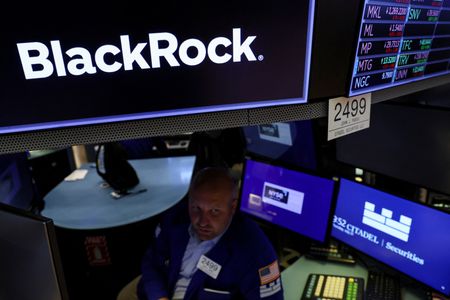By Hyunjoo Jin and Norihiko Shirouzu
(Reuters) -Some South Korean workers are decamping in droves from more of LG Energy Solution’s U.S. production sites because of visa concerns following last week’s immigration raid on its joint facility with Hyundai Motor, said two people familiar with the situation.
LG Energy Solution has also asked its subcontractors to prepare contingency plans and hire local workers, one of the people who has knowledge of the matter said, as the move threatens to slow its investment plan in the U.S.
The world’s second-largest car battery maker has seven U.S. factories, including four under construction.
Last week, agents from the U.S. Department of Homeland Security detained 475 people, including more than 300 South Koreans, at a Hyundai Motor-LG Energy Solution car battery plant in Georgia in the largest single-site enforcement operation in the department’s history.
Many of those detained had been sent to the U.S. for construction or equipment installation, work that is not allowed under ESTA visa waivers or B-1 business traveller visas held by many of them, Reuters has reported.
Some of those detained workers from the Georgia site have returned home, numerous media outlets have reported, but it has not been previously reported that South Koreans working in some of LGES’ other U.S. factories are leaving.
Workers at other LG Energy Solution sites who are in the United States under the ESTA visa waiver programme have been told to return to South Korea by the end of this week, according to one of the sources. This includes employees from subcontractors working at the sites, the person said.
WORKERS AT GM-LG PLANT LEAVE
Many, if not most, of the Korean nationals who had been working at a battery plant in Spring Hill, Tennessee, have returned home in recent days because of visa concerns, or plan to do so, a second source said. The site is jointly owned by LG and General Motors.
The two people spoke on condition of anonymity because of the sensitivity of the subject.
It was not immediately clear how many workers were heading back to South Korea. Some workers had already done so, one of the people said.
An LG Energy Solution spokesperson told Reuters the company has asked its employees who are on a business trip in the U.S. to immediately return home or stay at their residences. It did not comment on employees of subcontractors and declined to comment on whether the move would affect the timeline of its U.S. projects.
A General Motors spokesperson declined to comment, deferring to Ultium Cells, the joint-venture company that operates the GM-LG plants. In a statement, Ultium Cells said it complies with U.S. immigration and employment laws, and its contractors are required to do the same. The company said operations continue as normal at its plants.
Engineers from Korean equipment suppliers are often sent to U.S. sites to “help set up and fine-tune production equipment” and train U.S.-based workers, the second person said. Staff from those suppliers sometimes spend months at LG’s U.S. factories as they ramp up production, according to the second person familiar with the situation.
Subcontractors are now being asked to prepare contingency plans and hire local crews, given the mass departure of technicians and engineers, the first person said.
ESTA, the Electronic System for Travel Authorization, is used by the U.S. to determine the eligibility of visitors to travel to the country under a visa waiver programme.
SOUTH KOREAN COMPANIES FACE VISA TROUBLES
The raid on the Hyundai-LG facility on Thursday sent shockwaves through South Korea, long one of Washington’s closest allies in Asia, and came amid ongoing trade talks between the two countries that have not concluded due to differences over Seoul’s $350 billion investment package.
South Korean companies have said they struggled to obtain short-term visas for the specialist workers needed at their high-tech plants in the United States. As a result, they had come to rely on a grey zone of looser interpretations of visa rules during previous U.S. administrations, Reuters has reported.
U.S. President Donald Trump’s tougher immigration policy has created new challenges for LG Energy Solution and its domestic peers, Samsung SDI and SK On, as they follow through on their billions of dollars of investment pledges made under the previous Biden administration.
They are also bracing for weakening demand for electric vehicles in the U.S., as a $7,500 federal tax credit for EVs, introduced by the Biden administration, is set to expire at the end of the month.
(Reporting by Hyunjoo Jin and Norihiko Shirouzu; Writing by David Dolan; Editing by Miyoung Kim and Rod Nickel)










